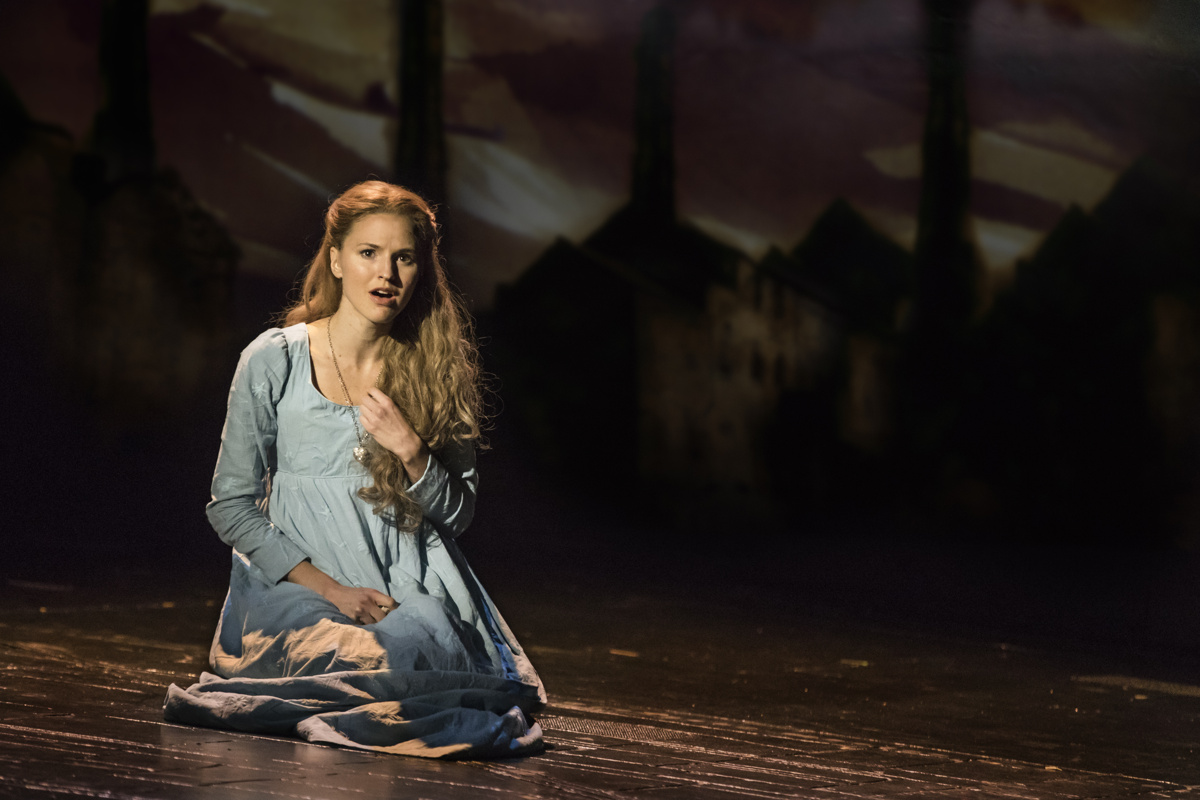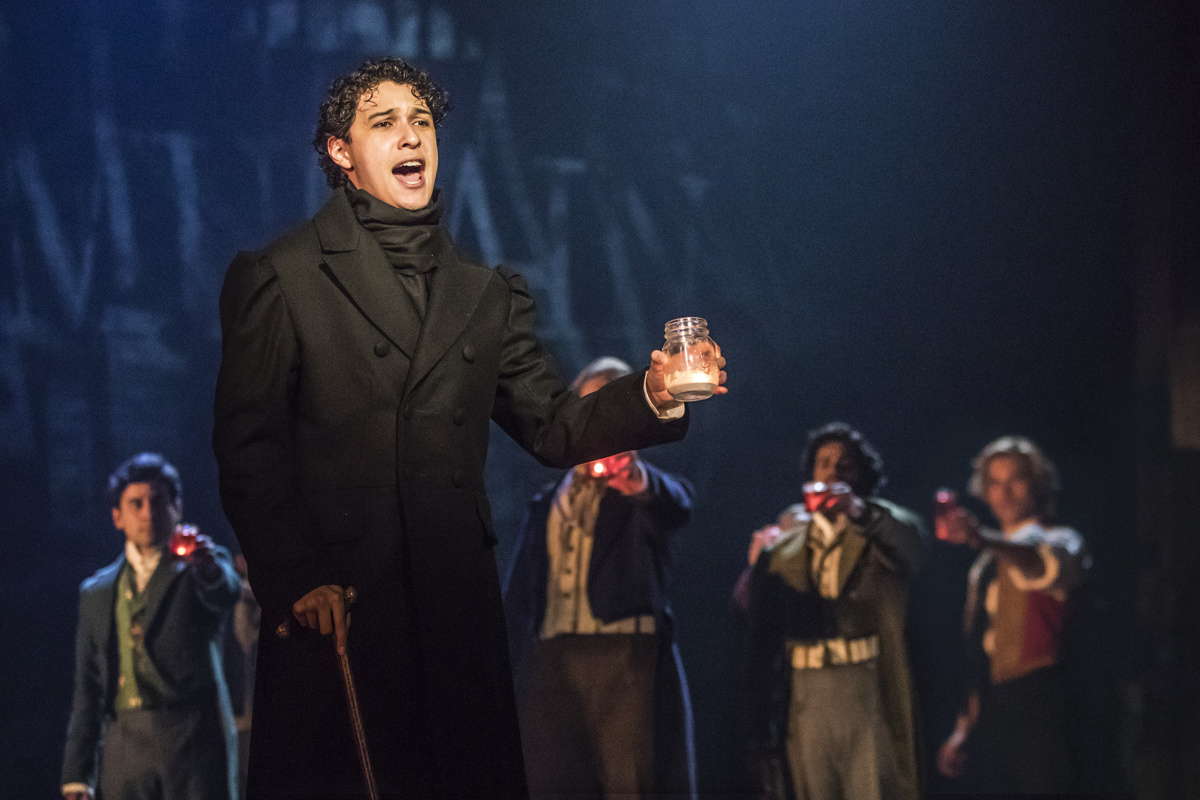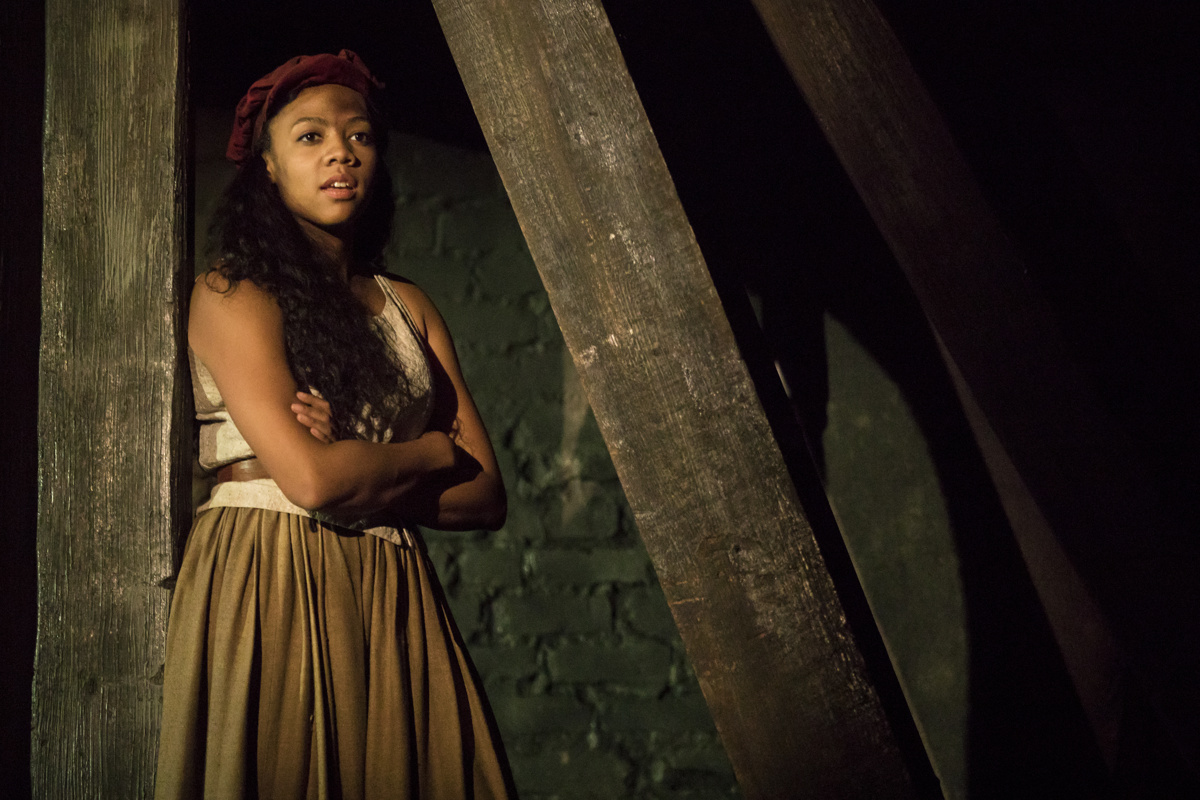Les Misérables: At the End of the Day This Production Fails to Impress
 |
Cosette logo and the words Les Misérables are the registered trademarks of Cameron Mackintosh Overseas Limited.
|
Let me start by saying I wanted to love this production. I would have settled for just liking it. Unfortunately, the touring production of Les Misérables that opened at The National Theatre in Washington, D.C. on December 20 is riddled with technical, performative, and artistic fumbles which prevent the production from rising to new heights.
The French melodrama remains the same. Jean Valjean (played here by a too-young Nick Cartell) is released following a 19-year prison sentence. After breaking his parole in an attempt to restart his life as a new man, the policeman Javert (Josh Davis, a high point) hunts down Valjean, threatening to undo all of the convict’s hard work. Upon evading arrest, Jean Valjean becomes the charge of Cosette (Jillian Butler), a girl orphaned after her mother Fantine’s (Melissa Mitchell) passing. As the June Rebellion takes hold in Paris, Cosette finds love with Marius (Joshua Grosso, another strong performer) and the two star-crossed lovers eventually make their way back to each other when the fighting subsides.
Where did a revival of the beloved 1980 musical, based on the equally beloved 1862 Victor Hugo novel, go wrong? For starters, the action on stage never seemed to stop. I’m aware that Les Mis is a very fast-paced musical largely because there is just so much plot to get through. But characters need to be given a brief moment of respite.
 |
Pleasant vocals weren't enough to turn "I Dreamed A Dream," performed by Melissa Mitchell (Fantine), into the power ballad it is meant to be
|
Look to the show’s first major ballad, “I Dreamed a Dream” (popularized by Susan Boyle and a heart-wrenching film performance by Anne Hathaway). This is Fantine’s moment to shine, to stand firm and let her heart pour out to the audience. For some reason, Directors Laurence Connor and James Powell provided unmotivated blocking throughout the number. A performer should be able to convey the power of such a beautiful song with minimal movement. Unfortunately, the song was not allowed it’s due as Ms. Mitchell wandered from left to right and back to center as she belted what was otherwise a passable rendition.
When “I Dreamed a Dream” goes wrong there is little one can do to rebuild the work's lost levity. Subsequent supposed-to-be-show-stoppers including “Who Am I?” and “Empty Chairs at Empty Tables” felt more like high school choir concert solos than professional numbers. Particularly cheesy and unnecessary was when the “ghosts” of Marius’s departed companions wandered onstage during “Empty Chairs” to remove candles that had been placed on stage.
There is such a thing as being too on the nose—this production didn’t seem to realize that.
 |
Josua Grosso's (Marius) vocals soared despite shaky direction during "Empty Chairs at Empty Tables"
|
It is important to note that several very strong performers are onstage at The National. Misters Davis and Grosso performed admirably and executed Javert’s and Marius’s solo numbers ("Stars" and "Empty Chairs" respectively) dutifully. The real star, however, was Phoenix Best (Eponine) who stole the show in the early act two ballad “On My Own.” Her subsequent duet with Marius (“A Little Fall of Rain”) brought a tear to my eye and was the indisputable emotional core of the evening.
When properly executed, the score of Les Misérables is arguably the greatest ever written. The melodies are lush, the songs are hummable, and each main character has a signature tune they can belt to their heart’s content. Similar to the show’s amateurish direction, Music Director Brian Eads never found comfort in letting the score have a moment to settle.
Meaningful numbers such as “Red and Black” and “Drink with Me” felt like they were performed at a tempo several ticks above their intended pace. Words then became jumbled, emotional moments in the middle of numbers did not land as effectively, and the show was propelled forward less like an army marching to battle and more like a train that had lurched off the tracks.
 |
Arguably salvaging the entire production, Phoenix Best (Eponine) was emotionally sincere and largely understated in her rendition of "On My Own"
|
When it comes to the acoustics, The National Theatre is perhaps D.C.’s worst and most outdated venue. Problems with comprehension in numbers like “At the End of the Day” cannot be properly explored since the theater’s lacking sound setup could be as much at fault as the performers, orchestra, or Music Director.
All in all, I still enjoyed my night at Les Misérables. But as someone who was a large fan of the show prior to this production (I have seen Les Mis twice on stage and have watched the film adaptation many times) there was so much squandered potential.
The best shows elevate the material from the page and breathe new life into the text. This touring Les Mis felt more like the theatrical equivalent of putting linoleum over a beautiful hardwood floor: you know there is quality work underneath but the viewable layer leaves something to be desired.
Les Misérables is playing now through January 7th at The National Theatre in Washington, D.C.
Production photos by Matthew Murphy. ©2017
Seen Les Misérables? Have opinions about this show or any others you've seen recently? Comment below!
If you liked this review and want to see more don't be afraid to Join the Club and Subscribe!

Comments
Post a Comment